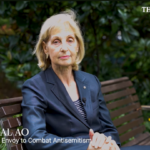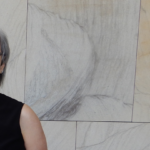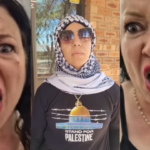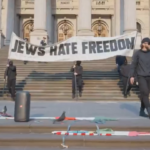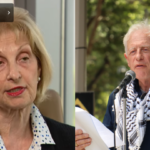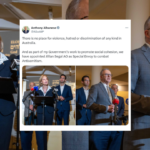NSW Government Uses Antisemitic Incidents to Toughen Hate Speech and Anti-Protest Laws

Amidst ongoing antisemitic attacks in Sydney, New South Wales premier Chris Minns announced on 19 January 2025 that his administration has come to the “difficult decision” to toughen NSW hate speech law and the anti-protest regime.
But to claim that this is difficult to do is odd, as of late, NSW Labor has shown itself to be just as keen to undermine our implied freedom of political communication as the state Liberal Nationals have been.
Somewhere along the way recently, a spate of anti-Israel vandalism attacks involving firebombed cars and spraypainted buildings across the Greater Sydney region morphed into antisemitic attacks, with the difference being that political criticism of the apartheid Israeli state is not antisemitism, but rather political criticism, whilst attacks upon Jewish people because of their faith is.
And in response to this, the Minns government is now seeking to lower the legislative threshold of what constitutes criminally punishable hate speech.
Yet, the underlying issue here is that government and the mainstream media has deliberately focused on anti-Israel and antisemitic incidents over the past 12 months, while they’ve neglected to address a rise in accompanying Islamophobic attacks, which has served to establish deep divisions within the community, despite the prime minister’s apparent aim to produce social cohesion.
The premier’s latest commitment to toughening the law, however, comes after his government had tasked former NSW Chief Justice Tom Bathurst to inquire into whether NSW hate speech laws should be tightened, and with the esteemed legal mind having reported back that there is no need for such law reform in November.
The criminal lawmaking itch
“I can’t promise an end to these despicable antisemitic attacks. I can’t do it. No premier can, and it would be irresponsible to do it,” Minns said at a press conference on 19 January 2025. “The reason is because there’s terrible people, unfortunately, that live in our community that perpetuate these acts and attack other members of the Australian community on the basis of their race or their religion.”
“I’ve become increasingly of the view that the initial spark isn’t someone going to a synagogue or a house and lighting a match. The initial spark is hate speech in our community,” the NSW premier continued, and he went on to add that he’s come to the “difficult decision, but the right one… to strengthen hate speech laws in NSW”.
Hate speech is outlawed under section 93Z of the Crimes Act 1900 (NSW), which contains the offence of publicly threatening or inciting violence on grounds of race, religion, sexual orientation, gender identity or intersex or HIV/AIDS status. The crime that constitutes publicly threatening or inciting violence towards a particular person or a group carries up to 3 years imprisonment.
The Herald reported on 20 January 2025 that, rather than tightening the 93Z offence, the Minns government is considering changes to subsection 21A(2)(h) of the Crimes (Sentencing Procedure) Act 1999 (NSW), which makes the motivation for having committed a crime against another person being their belonging to a particular group of people an aggravating factor when sentencing.
An aggravating factor serves to lengthen prison sentences or court-imposed fines. Attributes that trigger this law include religion, race or ethnic origin, language, gender identity, sexual orientation or age, along with variations of sex characteristics or disability.
And according to NSW Labor, the problem with this law at present is that hatred has to be established beyond a reasonable doubt for it to apply.
“I mean in all candour, yeah, I wish it was stronger looking back on it,” Minns told the Sunday press conference. “Self-evidently, if we’re proposing to change the law, it means that there’s a problem there.”
A dangerous conflation
Antisemitism is prejudice towards Jewish people simply because they are Jews. Antisemitism is often described as racial or religious bigotry. This type of hatred led to the Holocaust: the horrific genocide perpetrated against the Jewish population of Europe by Nazi Germany during World War II.
Anti-Zionism is the rejection of the 19th century European settler colonial political doctrine that seeks the establishment of the Jewish state of Israel on the land of the Palestinian people, which led to the founding of that nation in 1948.
And anti-Israel sentiment is political criticism of the state of Israel, which has been rife since it commenced a high-tech genocide upon the Palestinians of the Gaza Strip in October 2023.
All three forms of sentiment appear to have sparked acts of hatred and vandalism over the past 15 months, and it’s the conflating of the politically motivated acts with those spurred by prejudice against the religion of Judaism that’s leading to the apparent rise in antisemitism, as many are outraged by the mass killing in Gaza by Israel and have sought to make this known.
As renowned US academic Judith Butler pointed out last March, the conflating of political criticism of Israel and acts of Jewish prejudice has been propagated by certain Israelis since the 1970s, as it serves to block criticism of Israel for fear of being labelled antisemitic, which is a heavy charge as most people don’t want to be associated with the prejudice that fuelled the Holocaust.
This dangerous conflation appears to have led to the early acts of anti-Israeli vandalism being framed as antisemitism, in an effort to stymie criticism of the Gaza genocide, while later attacks have been accompanied by anti-Jewish messaging and the targeting of buildings has shifted onto synagogues.
Blurred lines serve to deflect
In the early hours of Tuesday morning, another apparent antisemitic attack targeted a childcare centre in the Sydney beach suburb of Maroubra, which involved since removed graffiti that police report as being antisemitic, along with, as the ABC reported, “some sort of fire” being lit within the grounds of the centre.
This led to the NSW premier and prime minister Anthony Albanese to appear before the cameras on the morning of 21 January to condemn this latest attack, which comes on the back of a Dover Heights incident last Thursday night.
“More detectives, more resources, more people chasing down these violent criminals who are determined to launch race-based antisemitic attacks in this beautiful city,” is what Minns said was in order as a response to the attack on a childcare centre.
The NSW premier has also announced that he will be enacting further criminal law, as he plans to pass a prohibition on protests that occur outside places of worship, in response to a rally that occurred outside Sydney’s Great Synagogue in early December, as well as in response to incidents of vandalism that have been targeting synagogues across Sydney.
An arson attack against the Addas Israel Synagogue of Melbourne on 6 December further contributed to the premier’s decision to draft additional antiprotest provisions, and the firebombing also brought the issue of rising attacks against Jewish people into stark relief.
Yet, as these attacks have presumably been sparked by the mass killing of civilians in Gaza, it does raise the question as to whether Australian authorities should have been propagating the conflation of antisemitism with anti-Israel sentiment in the public sphere, which it has consistently done ever since the start of the mass slaughter in Gaza.
Indeed, before the press on Tuesday, the PM addressed antisemitic acts as being the result of this conflation, when he said, “This attack is the latest in the series of antisemitic hate crimes, and it is a crime… to think through how you could think that something like this would advance any alleged cause that people might have”.
Albanese’s comments also seem to imply that pro-Palestinian supporters might have been behind the antisemitic attack in Maroubra, as in his assertion of a “cause” being advanced by the perpetration of the crimes appears to involve the PM suggesting the cause to see Palestine freed and the Gaza genocide ended as being the potential motivation behind this attack.
However, the pro-Palestine movement that has been consistently mobilising in Australian capital cities on a weekly basis since October 2023 has never partaken in antisemitic rhetoric. It has always highlighted the difference between opposition to Zionism and antisemitism. And much of its ranks are actually made up of Jewish people who oppose Zionism.
And as NSW Labor moves to legislate more tough-on-crime measures, the question begging to be answered and likely never to be, is whether this spike in antisemitic attacks would be happening if the government and the media had been straight with the public and condemned the Israeli state’s genocide, rather than protect it against criticism with the aid of the dangerous conflation.


